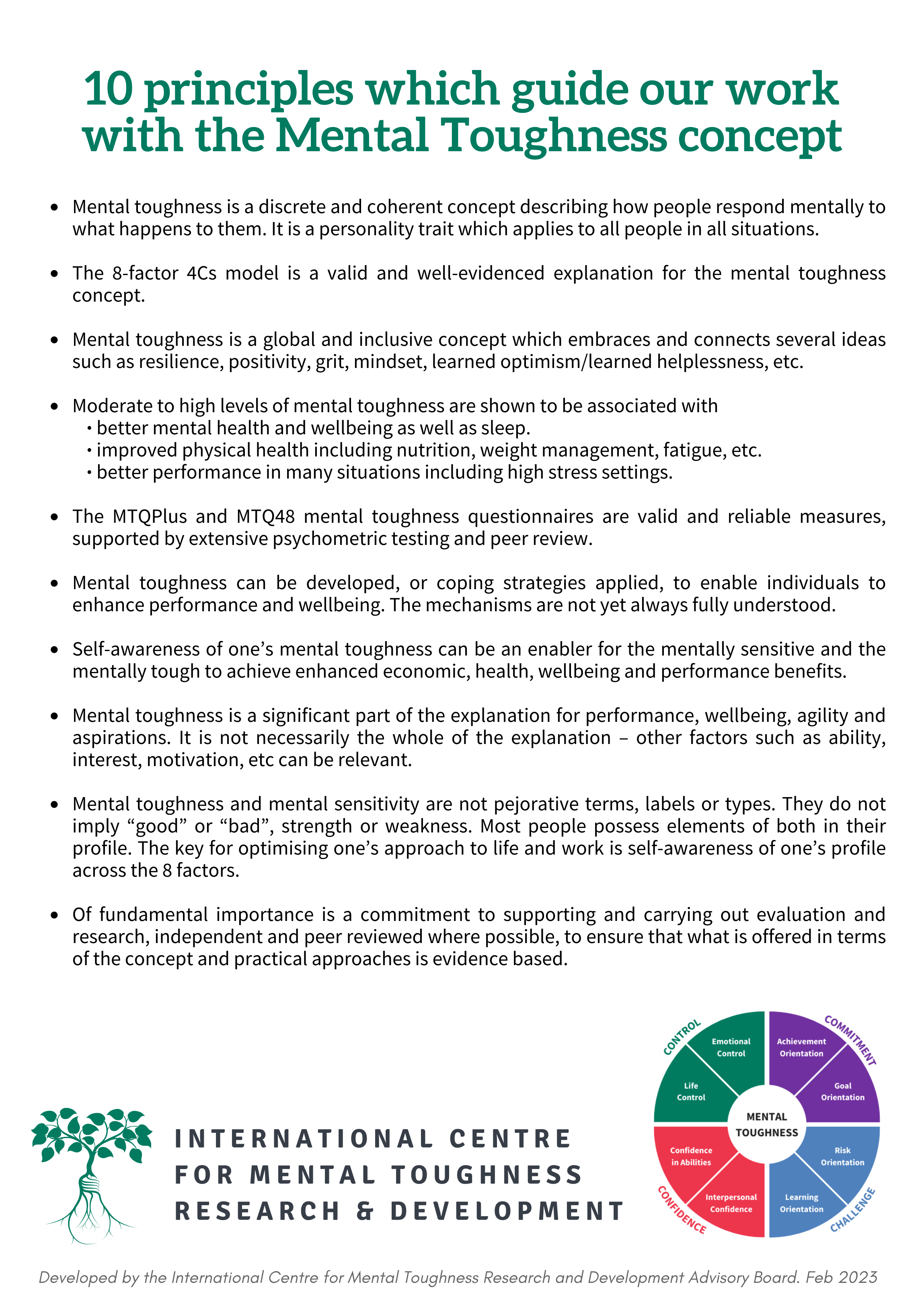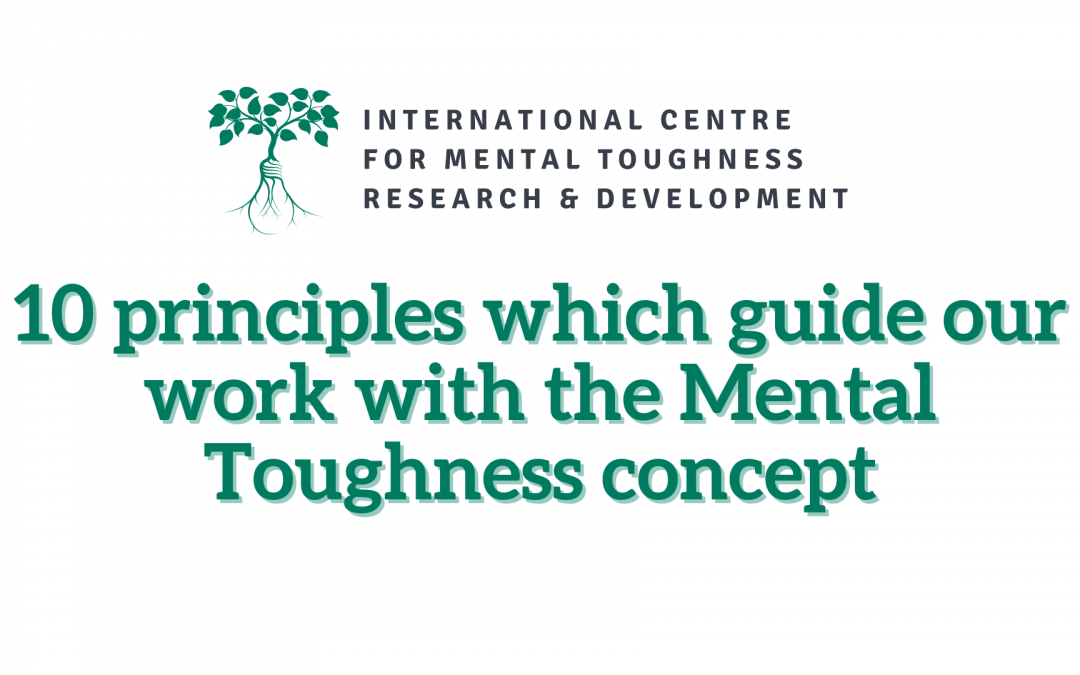The International Center for Mental Toughness Research and Development
The Global Advisory Board
10 Principles which guide our work with the mental toughness concept.
Now in its third year, The International Center for Mental Toughness Research and Development was established to support and encourage the development of the mental toughness concept with a particular emphasis on practical application which is based on sound evidence.
At the heart of the Center is an Advisory Board which currently consists of circa 25-30 people who meet 4 times a year. The composition is intended to be balanced between Senior Academics, Senior Practitioners, AQR International staff as well as supporters of the mental toughness concept. Most serve for a minimum of 2 years.
The composition is designed to capture a wide range of interests and expertise. These represent each continent and sectors such as coaching, education, occupational, OD, health, sport, social mobility etc.
A significant element of its purpose is to harness the skills, enthusiasm and interest of stakeholders to:
- Identify where research and development of the concept and, in particular, its applications may be usefully directed and supported.
- Develop collaboration between interested parties to create case studies, research papers, and development approaches that are well-evidenced.
The International Center for Mental Toughness Research and Development and its Advisory Board are evolving. The next stage is to expand the Board to enable participants from around the globe to engage in special interest groups to explore the value that the concept and the MTQ measures can bring to specific areas of application.
An important first step is to present a statement about the way product and concept development will take place. A statement of the standards that the ICMTRD and AQR International will uphold.

An important objective will be the establishment of a journal, in due course, through which both research and robust case studies can be published.


